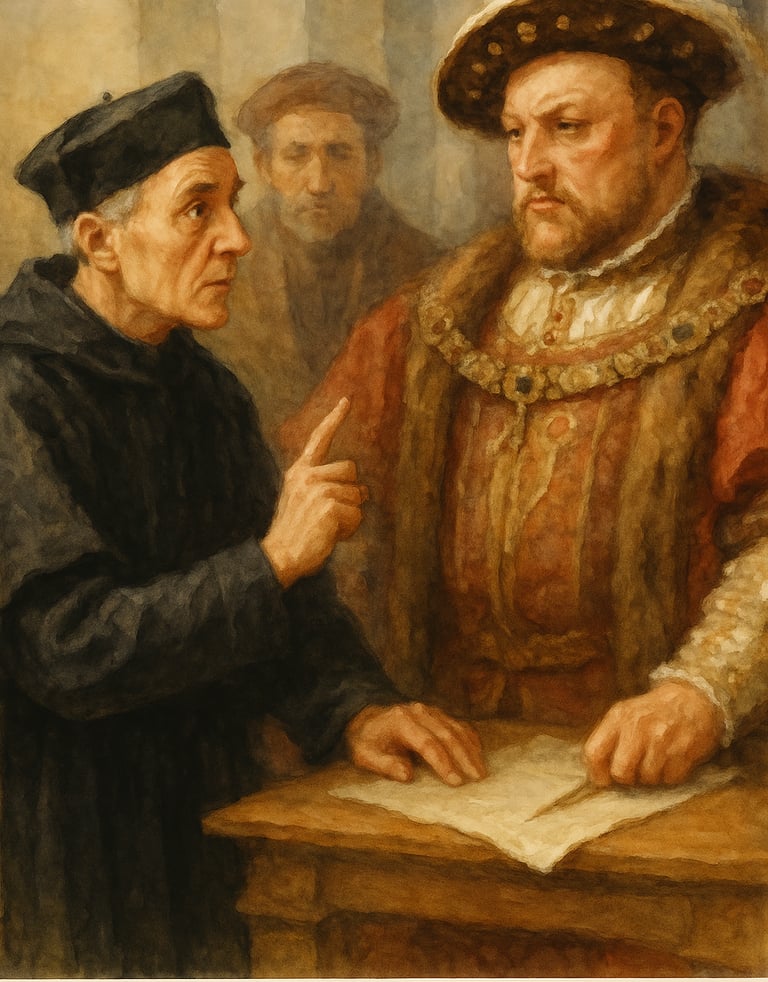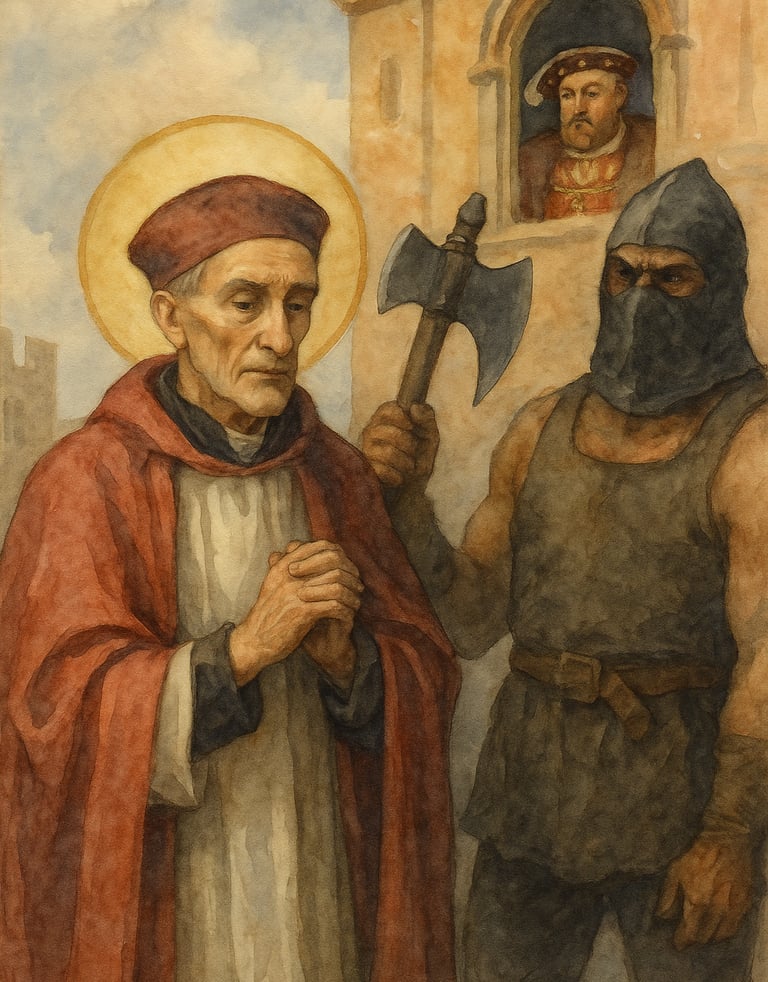St. John Fisher
Bishop and Martyr
Halo & Light Studios
6/22/20253 min read


Click Link for a reel of Daily Dose of Saints and Faithful Art:
https://youtube.com/shorts/wGGWG0u1i7A?feature=share
The 16th century marked a turning point in the life of the Church. As political power collided with spiritual authority and the Protestant Reformation swept across Europe, one man stood against the tide—not out of pride or protest, but out of fidelity. That man was St. John Fisher, an English bishop, scholar, and martyr whose life and death bear powerful witness to the truth and unity of the Catholic Church.
Born in 1469 in Yorkshire, Fisher rose from modest origins to become one of England’s most respected theologians. At Cambridge University, he earned a doctorate in theology and later served as Chancellor. He introduced Greek and Hebrew to the curriculum, believing that true reform began with deeper understanding of Scripture and tradition.
Fisher also served as tutor to Prince Henry, who would later become King Henry VIII. But their paths diverged dramatically. When the king sought an annulment from Catherine of Aragon to marry Anne Boleyn, Fisher stood nearly alone in opposing it. He defended the sacrament of marriage and the pope’s authority, even as other bishops fell silent or bowed to pressure.
In 1534, Parliament passed the Act of Supremacy, declaring Henry the supreme head of the Church of England. Fisher refused to sign it. For this, he was imprisoned in the Tower of London, where he grew frail but remained steadfast. On June 22, 1535, just before his execution, he opened his Bible to John 17:3–5, read it, and said, “There is enough learning in that to last me the rest of my life.” He was beheaded shortly after. His martyrdom remains a testament to truth over tyranny.
St. John Fisher reminds us that true reform is not rebellion—it is rooted in truth, humility, and communion. While others abandoned the Church for personal or political gain, Fisher gave his life in loyalty to her.
Today, we live with the tragic legacy of division. There are now tens of thousands of Protestant denominations, each interpreting Scripture apart from the Magisterium and apostolic succession. This splintering has not strengthened Christianity—it has weakened its witness and disparaged the unity Christ intended for His Body. And yet, Christ’s deepest desire remains unmistakably clear. In His high priestly prayer to the Father, He repeats it three times: “…that they may all be one… so that they may be one, as we are one… that they may become completely one…” (John 17:21–23) Such unity cannot be sustained by individual interpretation or human leadership. It must rest on the foundation Christ Himself laid.
The Catholic Church is not perfect—because it is made up of sinners (remember those Catholic bishops who signed the Act of Supremacy?). But Christ never promised sinless members; He promised protection for His Church: “Upon you, Peter, I will build my Church, and the gates of hell shall not prevail against it.” (Matthew 16:18) Notice the future tense: “I will build.” And notice also the singular form: “my Church.” Jesus didn’t hand His followers a completed manual—He left them the Holy Spirit to guide the Church as a living organism through time: “I have many more things to say to you, but you cannot bear them now. When the Spirit of truth comes, He will guide you into all truth…” (John 16:12–13).
The Church is a living Body, guided by the Holy Spirit throughout the ages—not static, but developing, ever unfolding the fullness of truth as Christ continues to build His Church.
So, my Christian brothers and sisters, let me ask you in love: Are you truly saved? And: Are you believing the true faith—the one that saints and martyrs have shed blood for from the beginning until now? Do believe God's truth or another man's or your own interpretation of the truth?
Don’t follow a man. Don’t anchor your faith to a moment in history or a charismatic figure. Believe in Jesus—and in the Church He established on earth to bless you with the sacraments, so that you may receive grace, grow in holiness, and ultimately become what you were made to be:
A saint.
“This is eternal life: that they may know You, the only true God, and Jesus Christ whom You have sent.” — John 17:3


